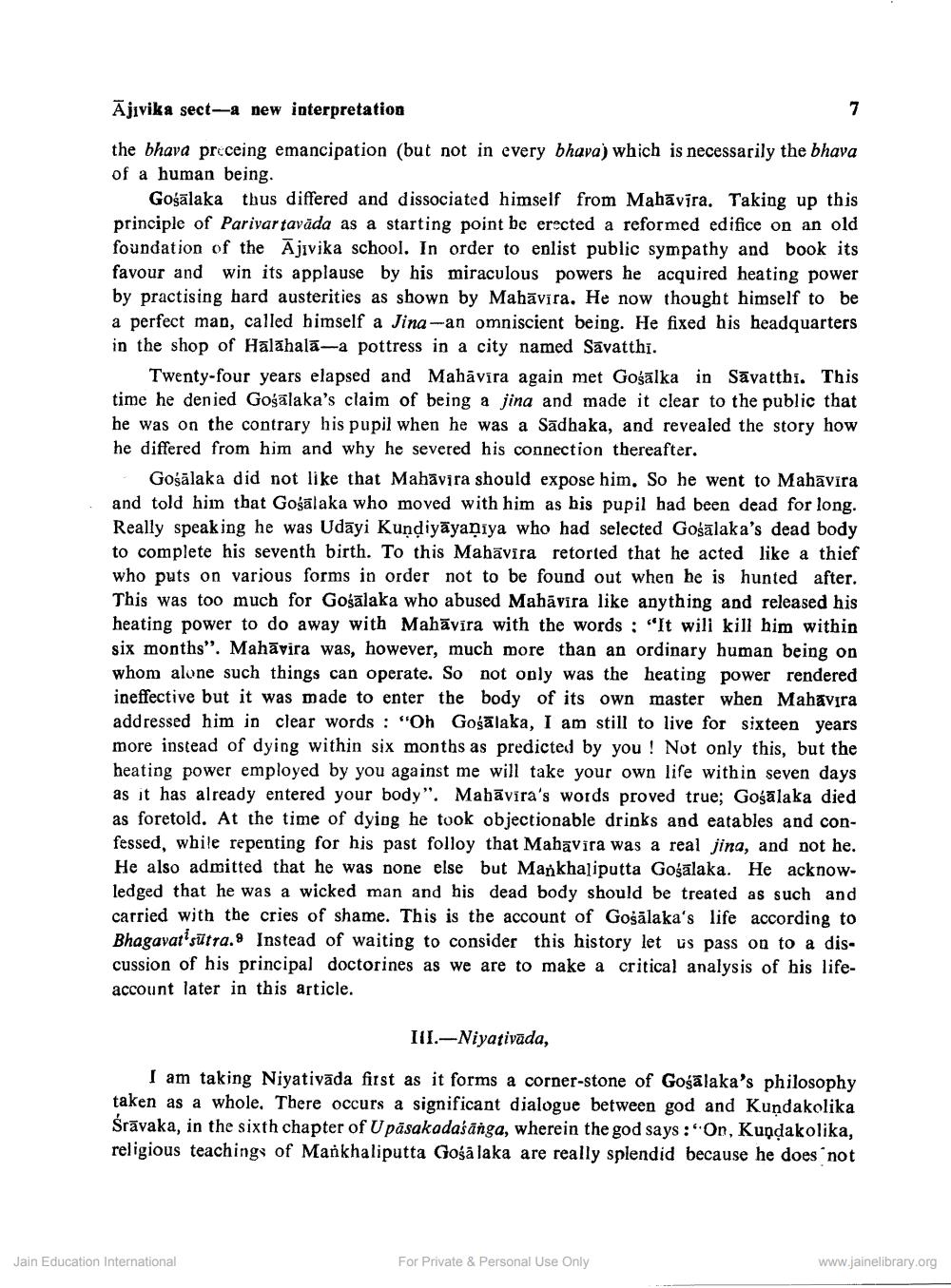________________
Ājivika sect--a new interpretation
the bhava preceing emancipation (but not in every bhava) which is necessarily the bhava of a human being.
Gośālaka thus differed and dissociated himself from Mahāvīra. Taking up this principle of Parivar tavāda as a starting point be erected a reformed edifice on an old foundation of the Ājivika school. In order to enlist public sympathy and book its favour and win its applause by his miraculous powers he acquired heating power by practising hard austerities as shown by Mahāvīra. He now thought himself to be a perfect man, called himself a Jina-an omniscient being. He fixed his headquarters in the shop of Hālāhalā-a pottress in a city named Savatthi.
Twenty-four years elapsed and Mahavīra again met Gośālka in Sāvatthi. This time he denied Gośālaka's claim of being a jina and made it clear to the public that he was on the contrary his pupil when he was a Sādhaka, and revealed the story how he differed from him and why he severed his connection thereafter.
Gośālaka did not like that Mahāvīra should expose him. So he went to Mahāvira and told him that Gośālaka who moved with him as his pupil had been dead for long. Really speaking he was Udāyi Kundiyāyaṇiya who had selected Gośālaka's dead body to complete his seventh birth. To this Mahavira retorted that he acted like a thief who puts on various forms in order not to be found out when he is hunted after. This was too much for Gośālaka who abused Mahavira like anything and released his heating power to do away with Mahāvīra with the words : "It will kill him within six months". Mahāvira was, however, much more than an ordinary human being on whom alone such things can operate. So not only was the heating power rendered ineffective but it was made to enter the body of its own master when Mahavira addressed him in clear words : "Oh Gośālaka, I am still to live for sixteen years more instead of dying within six months as predicted by you ! Not only this, but the heating power employed by you against me will take your own life within seven days as it has already entered your body". Mabāvīra's words proved true; Gośālaka died as foretold. At the time of dying he took objectionable drinks and eatables and confessed, while repenting for his past folloy that Mahavira was a real jina, and not he. He also admitted that he was none else but Mankhaliputta Gošalaka. He acknowledged that he was a wicked man and his dead body should be treated as such and carried with the cries of shame. This is the account of Gośālaka's life according to Bhagavat' sütra.9 Instead of waiting to consider this history let us pass on to a discussion of his principal doctorines as we are to make a critical analysis of his lifeaccount later in this article.
III.-Niyativada,
I am taking Niyativāda first as it forms a corner-stone of Gośälaka's philosophy taken as a whole. There occurs a significant dialogue between god and Kundakolika Śrāvaka, in the sixth chapter of Upāsakadašānga, wherein the god says :"On, Kundakolika, religious teachings of Mankhaliputta Gośà laka are really splendid because he does not
Jain Education International
For Private & Personal Use Only
www.jainelibrary.org




